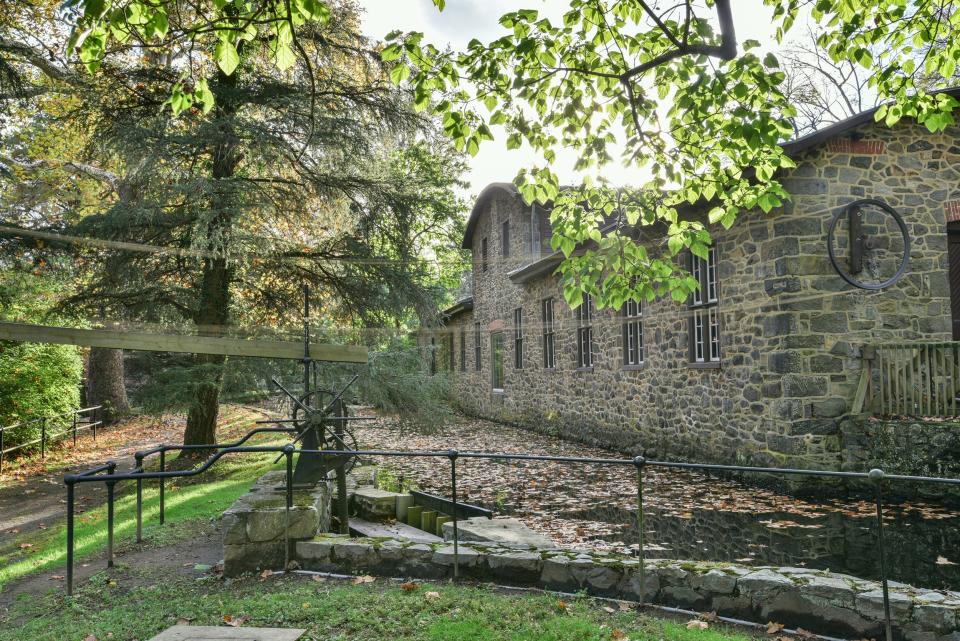Hagley partners to ensure that museum access is for everyone
Educator and museum researcher Jeffery K. Smith has argued that without museums, “There would be no way for a community … to say, ‘This is who we are; these are the artifacts that define our town.’ [T]here would not be a place to for a Sunday afternoon, or a Tuesday over lunch to go immerse oneself in the presence of genius, or to be able to stand before works that inspire, enlighten, illuminate.”
In short, he writes, “museums matter.”
Because museums matter, they must remain viable and vibrant parts of the communities they serve. But as any economist will tell you, “There is no such thing as a free lunch.”
To paraphrase museum leaders Hugh Genoways, Lynne Ireland and Cinnamon Catlin-Legutko: museums’ futures rely on revenue-generating practices that provide for present operations and future needs. “The sustainability of any museum requires this present and future mindset.”
A bit more bluntly stated: museums need money to keep the doors open and the lights on. This is why roughly two-thirds of American museums charge for admission.

In New Castle County, home to Hagley Museum and Library and many other world-class museums, admission fees typically fall between $14 and $25 for adults, with lower rates for students, seniors, and children. For a family of four, this puts a museum visit in the $50 to $100 range. To think of it another way: When you visit a museum and pay for your admission you are making an investment in the cultural health of a community.
Yet for vulnerable populations admission fees create barriers to accessing museums, public gardens and other cultural institutions. For many families, $50 to $100 puts museums out of reach.
More Open Call: Vision for Read House landscape connects past and future
In New Castle County alone more than 66,000 people (11.4% percent of the population) live below the poverty line— not to mention families living above poverty but with limited resources. So how can museums maintain financial stability while providing access for the most financially vulnerable members of the communities in which we are located?
Hagley and others have undertaken multiple initiatives to address this question.
Hagley is a proud participant in the Philadelphia-based Art-Reach program. Through Art-Reach, “Delaware residents who monitor their government-issued … benefits with an EBT card” can visit participating museums for $2 per person by showing their EBT card and ID at check-in. Individuals who “identify with having a disability but do not receive EBT assistance” can purchase a “Delaware ACCESS Pass” that provides that same benefits. Hagley is one of 16 participating Delaware organizations.
On the national level, there is another discount admission program. “Museums for All” is an initiative of the Institute for Museum and Library Services, a federal agency based in Washington, D.C., Museums for All is administered by the Association of Children’s Museums. Through Museums for All, “those receiving food assistance (SNAP benefits) can gain free or reduced admission to more than 1,000 museums…by presenting their SNAP EBT card” and ID. At Hagley, this means $2 admission. Six other Delaware institutions participate in Museums for All.
Beyond general admission, Hagley Museum also provides scholarships for thousands of students at Title I schools every year to participate in hands-on educational field trip programs at reduced or no cost. Funds are raised through the annual “Hagley 5K,” sales of crafts created by Hagley’s all-volunteer “Handwork Group,” donations, and grants.
Hagley is also one of 12 participants in the Brandywine Treasure Trail Passport through the Greater Wilmington Convention & Visitors Bureau. These passes provide general admission to each of the participating museums and cultural organizations from Memorial Day through October. A family of four can access 12 cultural institutions for $99. Passports can be purchased online or at participating sites.
Open Call: Ride Champion the horse at Rehoboth Beach's Funland, inspired by a Hollywood star
These are just some of the ways Hagley and other museums are working to lower the financial barriers admission fees can create. Like many of our neighbors, at Hagley Museum and Library we seek out ways to welcome new audiences to uncover the unique history, landscapes, and cultural legacies that make the museum so inspiring to so many. And we work tirelessly to make sure these experiences are here for generations to come. After all, museums matter.
Mike Adams is director of museum and audience engagement of Hagley Museum & Library.
This article originally appeared on Delaware News Journal: Hagley Museum and Library, partners ensure programs are for all

